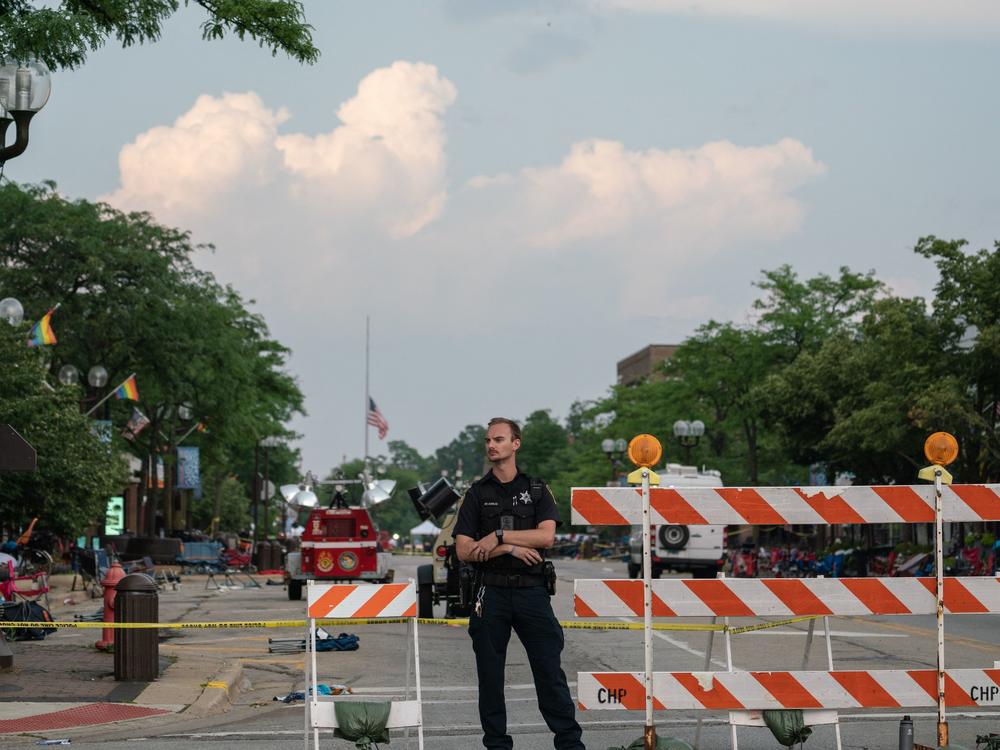Section Branding
Header Content
Highland Park suspect legally purchased 5 guns despite worrying encounter with police
Primary Content
The 21-year-old charged with murdering seven people at a Fourth of July parade in suburban Illinois is expected to make his first court appearance Wednesday, the day after authorities revealed that he had purchased his guns legally, despite two encounters with law enforcement that could have raised red flags.
The suspect, Robert Crimo III, passed four background checks and purchased five weapons, including the AR-15-type rifle used in the shooting, authorities said Thursday.
The revelations have raised questions about Illinois state gun laws and how Crimo could have qualified for gun ownership three months after local police notified state authorities in a "clear and present danger" report.
In addition to the seven people killed in Monday's shooting, 38 others were wounded. Crimo has been charged with seven counts of murder. Prosecutors say more charges are expected.
The suspect was able to buy guns despite a 'clear and present danger' report
On Tuesday, Lake County authorities revealed that the suspect, Robert Crimo III, had two encounters with local police in 2019, before he legally obtained his weapons.
The first call, in April 2019, was a report that Crimo had attempted suicide.
Then, in September 2019, a family member called Highland Park police to report that Crimo "said he was going to kill everyone" and that he had a collection of knives, Sgt. Christopher Covelli of the Lake County Sheriff's Office said at a press conference Tuesday.
Highland Park police confiscated 16 knives, a dagger and a sword from Crimo's home – but ultimately did not arrest Crimo, Covelli said, in part because none of his family were willing to sign complaints.
Afterward, Highland Park police notified Illinois State Police of the incident in a "clear and present danger" report.
But because Crimo did not then have a FOID card – a firearm owner's identification card that is issued by Illinois State Police and required for gun ownership – nor an application to deny, the state police said, their "involvement with the matter was concluded."
Three months later, Crimo, then 19, applied for a FOID card. His application was sponsored by his father, and was approved by state police in January 2020.
Later that year, Crimo passed three background checks to purchase guns, authorities said. He passed a fourth check on Sept. 20, 2021, his 21st birthday.
In a second statement released late Thursday, Illinois State Police directly addressed questions about why the "clear and present danger" report did not prevent Crimo from obtaining a FOID card just three months later.
"The report indicates that when police went to the home and asked the individual if he felt like harming himself or others, he responded no," the agency said. "No one, including family, was willing to move forward on a complaint nor did they subsequently provide information on threats or mental health that would have allowed law enforcement to take additional action."
Additionally, the agency said, Crimo's father claimed the knives were his, and that they were being stored in his son's closet "for safekeeping." Highland Park police returned the knives to Crimo's father later that afternoon.
Copyright 2022 NPR. To see more, visit https://www.npr.org.

